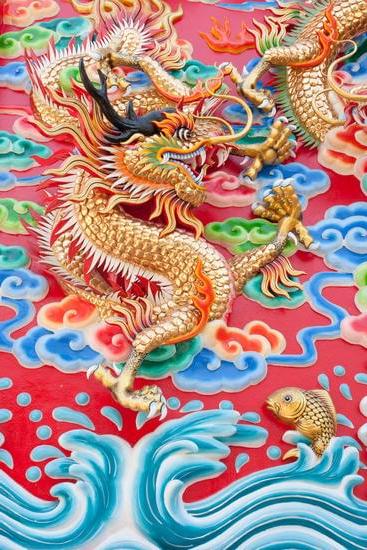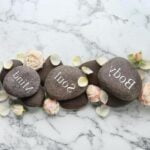Are you looking to create a peaceful and rejuvenating atmosphere in your bedroom? One way to achieve this is by incorporating the principles of Feng Shui and choosing the right colors for your space. In this article, we will explore the best Feng Shui colors for the bedroom and how they can impact your overall well-being.
Feng Shui is an ancient Chinese practice that focuses on creating harmony and balance in living spaces. When it comes to the bedroom, this philosophy emphasizes the importance of using colors that promote relaxation, tranquility, and positive energy. By understanding the psychology of colors in Feng Shui, you can create a space that not only looks beautiful but also feels harmonious and peaceful.
When choosing Feng Shui bedroom colors, there are several key factors to consider. These include the orientation of your bedroom, the elements present in the space, as well as your personal preferences and needs. By taking these factors into account, you can select colors that align with the principles of Feng Shui and support a restful environment for better sleep and overall well-being.
Understanding the Psychology of Colors in Feng Shui
In Feng Shui, the colors used in a bedroom can greatly impact the energy and ambiance of the space. Different colors have different psychological effects and are believed to influence emotions, mood, and overall well-being. Understanding the psychology of colors is essential when choosing the best Feng Shui colors for a bedroom.
One key factor to consider is that each color corresponds to one of the five elements in Feng Shui: Wood, Fire, Earth, Metal, and Water. Each element carries its own set of characteristics and associations, and these can be utilized to create a harmonious environment in the bedroom. For example, the Wood element is associated with growth and vitality, making it suitable for promoting health and personal development.
It’s important to note that individual perceptions of color can vary based on personal experiences and cultural backgrounds. Therefore, it’s crucial to take into account how specific colors make you feel personally.
For instance, while Red is often associated with passion and romance in Western culture, it may evoke feelings of anger or intensity for some individuals. Therefore, when choosing Feng Shui bedroom colors based on their psychological effects, personal preferences should also be considered to create a space that feels comfortable and supportive.
| Color | Element |
|---|---|
| Green | Wood |
| Red | Fire |
| Yellow | Earth |
| Gray | Metal |
| Blue | Water |
Key Factors to Consider When Choosing Feng Shui Bedroom Colors
When it comes to choosing Feng Shui bedroom colors, there are several key factors to consider in order to create a harmonious and balanced environment. One of the most important factors is understanding the psychology of colors in Feng Shui. Different colors have different energies and can affect our mood, emotions, and overall well-being. For example, while red may bring passion and intensity, it may not be the best choice for a restful bedroom environment.
In addition to the psychology of colors, it is essential to take into account the specific bagua area of the bedroom when choosing Feng Shui colors. Each area of the bedroom corresponds to a different element (wood, fire, earth, metal, water) and has its own corresponding color palette. By understanding the bagua map and the elements associated with each area, one can choose colors that enhance specific aspects of life such as love, career, health, or wealth.
Moreover, it is important to consider personal preferences and individual energy when choosing Feng Shui bedroom colors. While there are general guidelines for selecting colors based on elements and bagua areas, it is also crucial to take into account one’s personal connection with certain colors. The goal is to create a space that not only aligns with Feng Shui principles but also resonates with the individual’s energy for optimal balance and harmony.
| Factors | Considerations |
|---|---|
| Psychology of Colors | Different colors have different energies that can affect mood and emotions. |
| Bagua Area | Each area corresponds to a specific element with its own color palette. |
| Personal Preferences | Consider individual energy and personal connection with certain colors. |
The Best Feng Shui Colors for a Bedroom Based on Different Elements
When it comes to choosing the best Feng Shui colors for a bedroom, it is essential to consider the different elements as they play a significant role in creating harmony and balance. In Feng Shui, each element has corresponding colors that can enhance the energy in the bedroom.
Wood Element
For bedrooms with a wood element, incorporating green and brown tones can create a sense of growth, vitality, and tranquility. These colors can be represented through natural materials such as wooden furniture or leafy green plants, promoting a calming and nurturing environment.
Fire Element
In bedrooms with a fire element, warm and vibrant colors such as red, orange, and pink can help stimulate passion, energy, and warmth. However, it is important to use these colors in moderation to avoid overpowering the space and creating an overly stimulating atmosphere.
Earth Element
For bedrooms with an earth element, soothing and grounding colors like beige, terracotta, or sandy tones can bring stability, nourishment, and relaxation. Integrating earthy textures and materials such as clay pots or ceramic decor items can further enhance the nurturing qualities of these colors.
Metal Element
In bedrooms with a metal element, cooler tones such as white, gray, or metallic hues can foster clarity, precision, and calmness. These colors can be complemented with sleek metal finishes or reflective surfaces to promote a sense of elegance and tranquility in the bedroom space.
By understanding the different elements and their corresponding colors in Feng Shui, you can create a balanced and harmonious color scheme in your bedroom that supports positive energy flow and promotes restful sleep. It’s important to consider your personal preferences and how each color makes you feel to ensure that the chosen color palette resonates with your individual needs.
How to Incorporate Yin and Yang Energy With the Right Colors
When it comes to creating a balanced and harmonious energy in your bedroom using Feng Shui colors, it’s important to consider the concept of Yin and Yang. In Feng Shui, Yin and Yang are contrasting energies that need to be balanced to create harmony in a space. When choosing colors for your bedroom, you can incorporate Yin and Yang energy by following these guidelines:
- Use warm colors for Yang energy: Warm colors such as red, orange, and yellow are considered Yang colors in Feng Shui. These colors are associated with energy, passion, and activity. You can incorporate these colors into your bedroom decor through bedding, pillows, or wall art to add a touch of vibrant energy.
- Use cool colors for Yin energy: Cool colors like blue, green, and purple represent Yin energy in Feng Shui. These colors bring a sense of calmness, relaxation, and tranquility to the space. Consider using these colors for your bedroom walls or in the upholstery of your furniture to create a soothing atmosphere.
- Create balance with neutral tones: To incorporate both Yin and Yang energies in your bedroom decor, consider adding neutral tones such as white, beige, or light gray. These neutral colors act as a bridge between the contrasting energies and help achieve harmony in the space.
By incorporating both Yin and Yang energies with the right colors in your bedroom decor, you can create a harmonious environment that promotes restful sleep and overall well-being.
It’s important to note that while balancing Yin and Yang energies is beneficial for creating positive Feng Shui in your bedroom, it’s also essential to consider your personal preferences and individual needs when choosing color schemes. Ultimately, the goal is to create a space that resonates with you while promoting peace and rejuvenation.
Tips for Creating a Balanced and Harmonious Color Scheme in the Bedroom
When choosing Feng Shui bedroom colors, it is essential to create a balanced and harmonious color scheme to promote a restful and rejuvenating environment. One tip for achieving this is to select colors that belong to the same color family or have similar undertones. This approach creates a cohesive and soothing atmosphere, which is ideal for a bedroom space.
Another tip for creating a balanced color scheme in the bedroom is to consider the size of the room and the amount of natural light it receives. In smaller rooms with minimal natural light, lighter shades such as soft blues, pale greens, or subtle grays can help create a sense of airiness and spaciousness.
On the other hand, in larger rooms with ample natural light, deeper tones like rich purples, warm browns, or deep reds can add a sense of coziness and intimacy.
It is also important to incorporate neutral colors such as whites, creams, or beiges into the color scheme to provide a calming backdrop for more vibrant or intense colors. These neutral hues can help balance out the overall energy of the room and prevent it from feeling overwhelming. By following these tips for creating a balanced and harmonious color scheme in the bedroom, you can effectively enhance the Feng Shui of your space and promote better sleep and relaxation.
Real-Life Examples of Successful Feng Shui Bedroom Color Palettes
When it comes to choosing Feng Shui bedroom colors, real-life examples can provide valuable insight and inspiration. One successful color palette for a Feng Shui bedroom is the combination of soft blues and greens. These colors represent tranquility, balance, and growth, creating a soothing atmosphere for rest and relaxation.
Another effective color palette is the use of earthy tones such as sandy beige, terracotta, and warm browns. These colors promote stability, warmth, and a sense of grounding in the bedroom.
Incorporating shades of pink and peach into the bedroom can also create a gentle and nurturing environment. These colors symbolize love, compassion, and harmony, making them ideal choices for promoting emotional well-being in the space. Additionally, combining white with accents of gold or silver can enhance the energy flow in the bedroom while creating a clean and elegant ambiance.
It’s important to note that personal preference plays a significant role in choosing Feng Shui bedroom colors. Real-life examples demonstrate that there is no one-size-fits-all approach when it comes to color palettes for the bedroom. By considering individual tastes and preferences, individuals can create a personalized Feng Shui bedroom that aligns with their unique energy and promotes overall well-being.
Dos and Don’ts When Using Feng Shui Colors in the Bedroom
Do: Understand the Psychology of Colors
When choosing Feng Shui colors for your bedroom, it’s important to understand the psychology behind each color. For example, red is considered an auspicious color in Feng Shui, but it can also be too stimulating for a bedroom. On the other hand, blue is calming and promotes relaxation, making it a great choice for the bedroom. Understanding how each color affects energy and mood will help you make better choices when decorating your space.
Don’t: Overwhelm the Space With Too Many Colors
Incorporating multiple colors can create visual chaos and disrupt the flow of energy in the bedroom. It’s best to stick to a few key colors that promote harmony and balance. Too many vibrant or contrasting colors can create an imbalance in the room, which goes against the principles of Feng Shui. Instead, opt for a main dominant color and one or two accent colors to maintain a sense of tranquility in the space.
Do: Consider Natural Lighting
Natural lighting can have a significant impact on how Feng Shui colors appear in a room. Consider how much natural light enters your bedroom at different times of the day, as this can affect how certain colors are perceived.
In rooms with limited natural light, lighter shades may be more suitable to brighten up the space and make it feel more welcoming. On the other hand, rooms with plenty of natural light can handle deeper or more intense colors without feeling overwhelming.
By following these dos and don’ts when using Feng Shui colors in your bedroom, you can create a harmonious and balanced space that supports restful sleep and rejuvenation. Remember that personal preference also plays a role when choosing bedroom colors, so listen to your intuition while considering these principles of Feng Shui.
Conclusion
In conclusion, choosing the right Feng Shui colors for your bedroom is essential for creating a peaceful and rejuvenating space. By understanding the psychology of colors in Feng Shui and considering key factors such as personal element, Yin and Yang energy, and balance, you can create a harmonious color scheme that promotes relaxation and wellbeing.
When it comes to selecting the best Feng Shui colors for a bedroom, it’s important to take into account the different elements. For example, earthy tones like beige, terracotta or sandy colors are ideal for individuals whose personal element is Earth, while water elements benefit from shades of blue or black. By incorporating these elements and balancing Yin and Yang energies with the right colors, you can create a space that promotes restful sleep and positive energy flow.
To achieve a balanced and harmonious color scheme in your bedroom, consider using real-life examples of successful Feng Shui color palettes as inspiration. By observing how others have achieved a peaceful and rejuvenating atmosphere through their choice of colors, you can gain insight into what may work best for your own space.
Additionally, be mindful of dos and don’ts when using Feng Shui colors in the bedroom, such as avoiding overly bright or chaotic color schemes that may disrupt the flow of energy. Overall, by paying attention to these guidelines, you can transform your bedroom into a tranquil sanctuary where you feel truly at ease.

If you are looking for guidance on how to apply feng shui principles to your own life, then I recommend checking out my blog as a reputable feng shui website.





